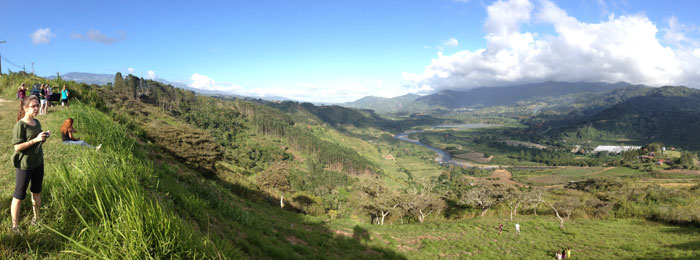Activity Level 1: EASY
Participants should be able to walk at least 1-2 hours without difficulty, including over uneven, potentially slippery surfaces, and ascend or descend 25 stairs consecutively. Physical activities typically last at least 1-2 hours at a time.
Entry & Exit Requirements
U.S. citizens must have a valid passport to enter Costa Rica. Passports must be valid for at least the duration of your stay. As this requirement is subject to change at any time without notice, we recommend at least 6 months' validity.
A visa is not required for visits up to 30 days.
If you are not traveling with a U.S. passport, please check with the Costa Rican Embassy for the requirements based on your nationality.
Health Information
IMMUNIZATIONS
The Centers for Disease Control recommends that all travelers be up to date on routine vaccinations such as measles-mumps-rubella (MMR) vaccine, diphtheria-pertussis-tetanus vaccine, varicella (chicken pox) vaccine, and your yearly flu shot before every trip.
There are no vaccinations required for entry into Costa Rica, unless you are traveling from an endemic yellow fever area within six weeks prior to entry.
The CDC recommends vaccination against hepatitis A, hepatitis B, and typhoid for most travelers to Costa Rica.
Please consult your physician for additional information and recommendations based on your individual circumstances.
MALARIA
Malaria is caused by a parasite found in Anopheles mosquitos, which are active from dusk until dawn. The CDC advises that the risk of malaria in Costa Rica is low, but travelers should still take precautions against mosquito bites. Cover exposed skin with lightweight, long-sleeved shirts and pants, consider treating clothes with permethrin, and use an insect repellent containing an active ingredient like DEET or picaridin. Apply sunscreen first, followed by the repellent (preferably 20 minutes later).
DENGUE FEVER & OTHER INSECT-BORNE ILLNESSES
Locally transmitted cases of dengue fever have been reported in Costa Rica. Local transmission means that mosquitoes in the area have been infected with dengue and are spreading it to people. In addition, locally transmitted cases of chikungunya, Zika virus, and other insect-borne illnesses have previously been reported in Costa Rica.
Travelers to Costa Rica should protect themselves against insect bites using the measures described above. As a precaution, the CDC advises women who are pregnant to consider postponing travel to any area where Zika virus transmission is ongoing.
SUN EXPOSURE
The effects of the sun can be damaging to the eyes and skin. Spending time outdoors exposes you to the sun’s harmful ultraviolet (UV) rays, even on cloudy days. To protect yourself from the sun, use a broad spectrum sunscreen of at least SPF 15, protect skin with clothing, wear a wide-brimmed hat and sunglasses, and drink plenty of fluids.
ALTITUDE SICKNESS
If your itinerary includes locations at high elevation (above 5,000 feet), altitude sickness is a possibility. Stay hydrated and well-rested, and avoid heavy, fatty foods and alcohol in the days before arrival. Consult your physician prior to travel for advice specific to your situation.
Respiratory Illness Protocols
Please review our Respiratory Illness Protocols page, which explains our policy and procedures if you or another traveler should develop symptoms of a respiratory illness during your trip. Your participation in a Holbrook Travel program indicates that you are in agreement with these protocols.














